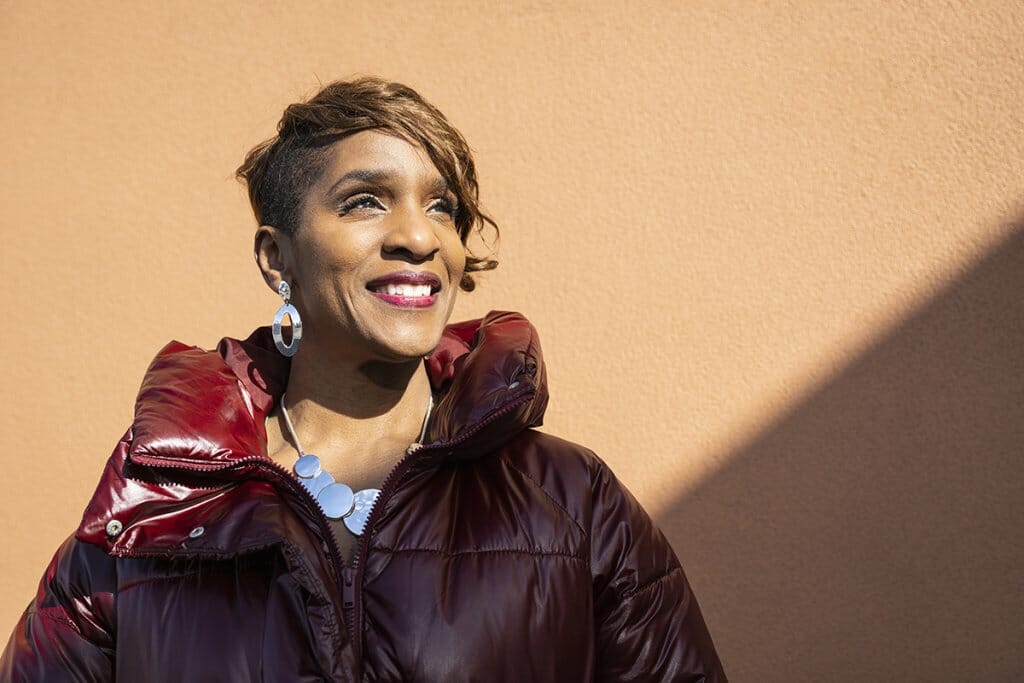Where All People Thrive
The new Institute for Diversity Science will use rigorous methods to address inequality.

Byars-Winston says the institute will translate research into “actionable solutions.”
Diversity science takes an empirical approach to reducing discrimination. UW–Madison has dozens of faculty members who conduct innovative research, but there has been no infrastructure to connect the various diversity-science initiatives across multiple disciplines — until now. Psychology professor Markus Brauer teamed up with Angela Byars-Winston of the Department of Medicine to launch the Institute for Diversity Science, which is unique in higher education. It positions the UW as a leader in addressing issues of diversity, equity, and inclusion through rigorous scientific methods. Byars-Winston, who serves as chair (with Brauer as executive director), believes the new institute can help create a society “where all people thrive.”
How did the Institute for Diversity Science come about?
It was Markus’s forward-thinking idea to create this intellectual hub for campus and beyond so researchers could share their methods and translate their research into actionable solutions. Markus, for example, has been doing field studies about the impact of prejudice-reduction initiatives in real-world spaces. I’ve been looking at how we can diversify the biomedical sciences by race, ethnicity, and gender through mentorship. The Institute for Diversity Science gives us an opportunity to say, gosh, what happens if we actually shared what we learn from each other, under one umbrella?
What’s an example of “actionable solutions”?
Let’s say we want to diversify the workforce in Deerfield, Wisconsin. What would help to draw more ethnically diverse people to that community? There are businesses all around Wisconsin that want diverse people to come to their communities, but they don’t know how to effectively promote inclusive behaviors in workplace settings. How do you promote women’s interest in entrepreneurship? How do you reduce the institutional barriers for scientists of color?
The U.S. is steeped in research that has documented the extent of underrepresentation, exclusion, and race- and gender-based violence. But how do we actually ameliorate those issues? Under what conditions are diverse teams most effective? How do you increase voter turnout from marginalized groups? Those are the kinds of questions that diversity-science researchers study.
How does science play a part in addressing those questions?
One of the things diversity science can do is to offer more precision for well-intentioned people, like most of the folks I meet in Wisconsin and beyond. They want to see a society that’s just and equitable because it benefits all of us. But we want to be more precise in how we work toward that. We don’t want to throw good money after bad on things that we’ve never studied but that we only think will work.
For example, does role-modeling actually work? You can’t just put a Native American astronaut in front of middle schoolers and hope that more people from Indigenous backgrounds will want to go into aeronautics. It’s more complicated than that, and we have to study the results. What are the conditions that make those role models more or less effective?
How will the Institute for Diversity Science carry out its mission?
We’ll have visiting scholars so that researchers from across the country can bring their methods here. We want to support graduate students who are really on the cutting edge. We’ll have frequent opportunities to share what’s happening with the campus, city, and state. The success of our institute will be in connecting with every sector, including industry, higher education, primary and secondary education, health care systems, the business community, and the scientific community. We’ll have a range of activities that can address real-world challenges and create partnerships with communities to come up with solutions to the issues that we all want to see resolved.
What’s an ideal outcome for the institute?
UW–Madison has advanced research in horticulture and botany and transplant science, so we can surely advance diversity-science research. Markus and I hope the institute will attract faculty who are already national leaders to elevate UW–Madison’s visibility in this field. Wouldn’t that be a game changer, to have people think of Wisconsin when they think of diversity science? That alone, to me, is revolutionary.
I also hope the institute encourages more investigators to take up diversity-science research. More work needs to be done. I want the UW to be a place where early-career researchers will see an opportunity to learn from investigators who are already established in the field so that there’s a sharing of knowledge across career stages. Then we’ll be better able to identify the factors that contribute to group-based inequality so we can intervene and eradicate them.
Published in the Summer 2023 issue


Comments
Katrina October 10, 2023
I was a latina grad student of Dr. Byars Winston and did not see these mentorship practices elevated to the level of praxis. I was forced to file an EEOC complaint.